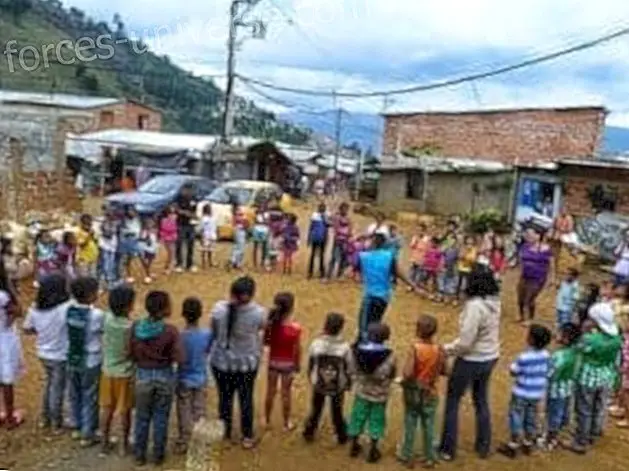One of the concerns that can be raised to adults after the death of a loved one is how to tell their children what has happened. How to express it so that they understand it and can adapt to the new situation.
It is very important not to lose sight of the fact that the explanations about what has happened are much healthier and will help them process the grief better than the silences . Since children, however small, are able to feel that something strange happens at home; the silences and not explaining what happens can actually lead to confusing them.
 Children are able to talk about any topic with which they have had minimal experience. Since childhood in stories, movies and in what they hear from the conversations of elders, death is present . We will offer a series of guidelines to follow on how to deal with this issue.
Children are able to talk about any topic with which they have had minimal experience. Since childhood in stories, movies and in what they hear from the conversations of elders, death is present . We will offer a series of guidelines to follow on how to deal with this issue.
- Use the language of children, simple language, words that they understand and adapted to their age.
- Not waiting for an immediate or obvious response from the child after the conversation may take time, just like in adults.
- Listen and observe the child carefully, to see if there is any change in behavior, alterations at the time of eating, of sleeping.
- It should be available in case the child wants to express something to us, you should not try to cover all the important aspects of death in a single conversation. Since it could saturate the little one, generating then that it does not get to assimilate what we say.
- One of the most valuable methods to talk with children about death is to let them talk and ask freely . Express them clearly that nothing they can ask us is going to hurt or piss us off. Since sometimes they are afraid of parents feeling bad about their questions. An example would be: ari Cari o, if you want to ask me about what has happened, or if at any time you feel sad, confused or angry, you can tell me. Neither your father nor I will be angry, nor will we get sad. Things have to be told and shared with whoever you want to feel a little better.
- Do not avoid using the words death or morir . You have to refer to things by name to identify death and the process of dying. The grandfather was very sick, and was a very old person. The doctors have done everything they could to save him, but in the end he has died. It is normal that we feel sad, or that it does not seem fair because we loved him so much.
- Avoid the use of euphemisms and words that can create confusion or that may have alternative meanings for the child. The use of such expressions confuses the child and the exact words must be used. Examples of inaccurate words are: he has left, he is no longer with us, he has gone on a trip.
- Incorporate religious beliefs to explain the purpose of death only when the family feels comfortable with these terms. Ideas or beliefs that parents do not really share should not be included, as it can confuse the child.
- Clarify that death is not the result of the actions or thoughts of the child. Sometimes the little ones hear expressions such as me you will end up killing, he will give me something . Children can understand it literally and this must be clarified. That thought is one thing and other actions. And that thinking something is not going to lead it to magically come true.
- Tell the child that the patients usually recover . Children may sometimes not be able to differentiate between minor illnesses and those that threaten a person's life. And assimilate that any disease will inevitably end in death.
- Answer clearly and simply . Long monologues are of no use. When the answer to one of them is unknown, the child should be instructed instead of inventing a false answer and evading.
- Respect the child's ability to tolerate the conversation . If they exhibit indifference during the conversation, they play or watch television. With their behavior they are transmitting their inability to tolerate more information. Given this you should not press but make clear our availability to talk to them whenever they want.
- Involve the child in farewell rituals . Unfinished business is the factor that most influences the non-resolution of the duel. The involvement depends on the evolutionary level of the child. What must be made clear is that they are not excluded from family life. In the event that parents feel uncomfortable letting their child participate in these rituals, they should let them know. Ask them if they want to go to the funeral or the funeral home; instead of believing that the child is not sufficiently prepared to participate.
Source : http://www.elconfidencial.com
The guidelines to follow to tell children the death of a loved one






